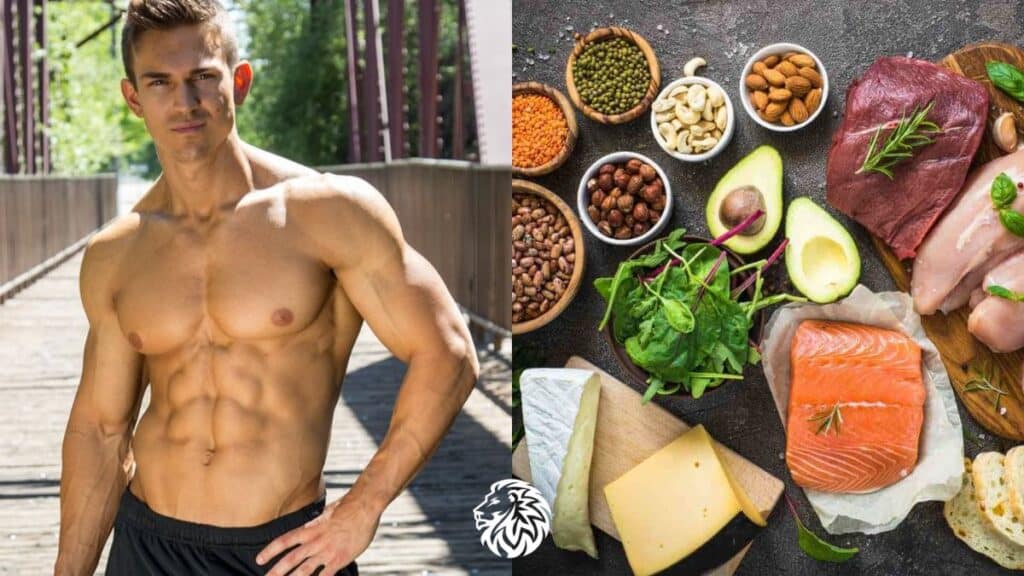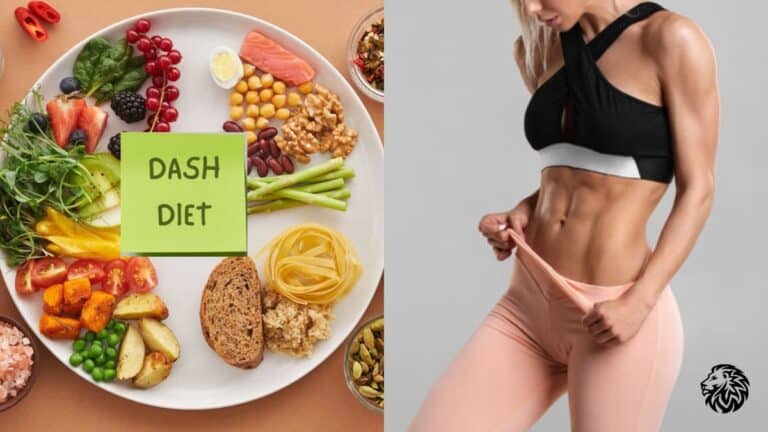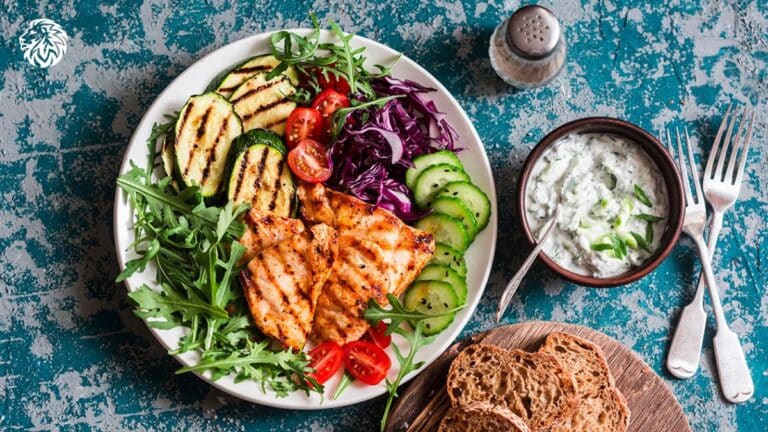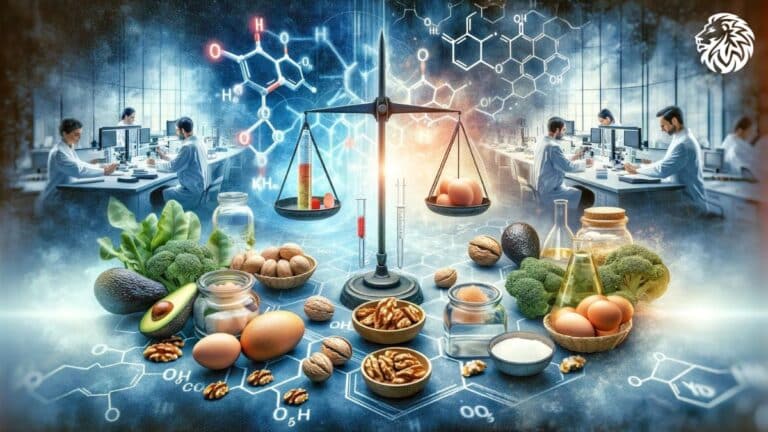Gaining muscle is a common goal for fitness enthusiasts, athletes, and those seeking to improve their physique. While regular exercise and strength training are crucial components of muscle growth, what you eat plays an equally significant role. In this comprehensive guide, we will discuss the principles of eating to gain muscle, including the essential nutrients, portion control, meal timing, and more. We will also explore frequently asked questions to help you make informed decisions about your nutrition plan.
The Fundamentals of Nutrition for Muscle Growth
The Role of Protein
1. Importance of protein for muscle repair and growth
Protein is a vital macronutrient for muscle growth and repair. It provides the building blocks, known as amino acids, which are necessary for repairing muscle tissue damaged during exercise. Consuming adequate protein stimulates muscle protein synthesis, promoting the development of new muscle tissue and increasing muscle mass.
2. High-quality protein sources
High-quality protein sources are those that contain all nine essential amino acids in sufficient quantities. These sources are typically complete proteins, which are more effective for muscle growth. Some examples of high-quality protein sources include:
- Lean meats (chicken, turkey, lean beef)
- Fish (salmon, tuna, cod)
- Dairy products (Greek yogurt, cottage cheese, milk)
- Eggs
- Plant-based options (tofu, tempeh, edamame, quinoa)
The Role of Carbohydrates
1. Energy source for workouts and daily activities
Carbohydrates are the body’s primary energy source, providing fuel for workouts and daily activities. Consuming adequate carbohydrates allows you to perform at your best during exercise, enabling you to train harder and stimulate muscle growth more effectively.
2. Types of carbohydrates
Carbohydrates can be classified into two main types: simple and complex. Simple carbohydrates are quickly absorbed by the body, providing rapid energy. However, they can lead to energy crashes and increased hunger. Examples of simple carbohydrates include sugar, honey, and white bread.
Complex carbohydrates, on the other hand, are slowly absorbed, providing sustained energy and keeping you fuller for longer. These carbohydrates are rich in fiber and essential nutrients, making them more beneficial for muscle growth. Examples of complex carbohydrates include:
- Whole grains (brown rice, quinoa, whole wheat bread, oats)
- Fruits (apples, bananas, berries)
- Vegetables (leafy greens, sweet potatoes, broccoli)
The Role of Fats
1. Essential fatty acids and hormone production
Fats, particularly essential fatty acids, play a crucial role in hormone production, such as testosterone, which is vital for muscle growth. Fats also help with the absorption of fat-soluble vitamins, which contribute to overall health and well-being.
2. Healthy fat sources
To support muscle growth, it is essential to incorporate healthy fats into your diet. Some examples of healthy fat sources include:
- Avocado
- Nuts and seeds (almonds, walnuts, chia seeds, flaxseeds)
- Fatty fish (salmon, mackerel, sardines)
- Olive oil and coconut oil
- Nut butters (almond butter, peanut butter)
Incorporating a balanced mix of protein, carbohydrates, and fats into your diet will provide the necessary nutrients for optimal muscle growth and overall health. Prioritize nutrient-dense foods and aim to consume a well-rounded, varied diet to support your muscle-building goals.

Portion Control and Caloric Surplus
Determining your caloric needs
To gain muscle, you must consume more calories than your body burns, creating a caloric surplus. Determining your caloric needs begins with calculating your Basal Metabolic Rate (BMR), which is the number of calories your body needs to maintain its current weight at rest. Several online calculators can help you estimate your BMR based on factors like age, weight, height, and gender.
Next, consider your activity level. Multiply your BMR by an activity factor (e.g., sedentary, lightly active, moderately active, very active) to estimate your Total Daily Energy Expenditure (TDEE). To create a caloric surplus for muscle gain, add an additional 250-500 calories to your TDEE. Keep in mind that consuming too many extra calories may lead to fat gain, so monitor your progress and adjust your intake accordingly.
Creating a balanced meal plan
A balanced meal plan for muscle gain should include a mix of high-quality protein, complex carbohydrates, and healthy fats. Use the following macronutrient distribution as a starting point:
- Protein: 25-35% of total daily calories
- Carbohydrates: 45-55% of total daily calories
- Fats: 20-30% of total daily calories
Divide your daily caloric intake into 4-6 meals and snacks per day, ensuring that each meal includes a balance of protein, carbohydrates, and fats. Adjust the macronutrient distribution based on your individual needs, preferences, and progress.
Importance of portion control
Portion control is essential for muscle gain to prevent overeating and minimize fat gain. Even with a caloric surplus, consuming excessive amounts of food can lead to unwanted weight gain. Use measuring cups, food scales, and other tools to accurately gauge portion sizes. Alternatively, you can use the “hand method” to estimate portion sizes:
- Protein: A serving should be roughly the size and thickness of your palm.
- Carbohydrates: A serving should be about the size of your clenched fist.
- Fats: A serving should be about the size of your thumb.
By practicing portion control and creating a balanced meal plan tailored to your caloric needs, you can effectively gain muscle while minimizing fat gain. Regularly reassess your progress, and adjust your meal plan and portion sizes as needed to achieve your muscle-building goals.

Meal Timing and Frequency
Pre-workout nutrition
Proper pre-workout nutrition is essential to fuel your body for exercise and optimize muscle growth. Aim to consume a balanced meal or snack 1-3 hours before your workout, consisting of protein, carbohydrates, and a small amount of healthy fats. This ensures that your body has the necessary nutrients and energy for optimal performance. Some examples of pre-workout meals or snacks include:
- Greek yogurt with fruit and a drizzle of honey
- Whole grain toast with peanut butter and banana slices
- A smoothie with protein powder, oats, berries, and spinach
Post-workout nutrition
Post-workout nutrition is crucial for muscle recovery and growth. Consuming a meal or snack within 30 minutes to 2 hours after your workout helps replenish glycogen stores and stimulate muscle protein synthesis. Focus on a combination of protein and carbohydrates, with a smaller amount of healthy fats. Some examples of post-workout meals or snacks include:
- Grilled chicken with brown rice and roasted vegetables
- Protein shake with fruit and almond milk
- Tuna and whole grain crackers with a side of sliced avocado
Meal frequency and muscle recovery
Eating more frequently, such as 4-6 meals and snacks per day, can help maintain steady energy levels, promote muscle recovery, and ensure a consistent supply of nutrients for muscle growth. By dividing your daily caloric intake into multiple smaller meals, you can prevent extreme hunger and support optimal muscle-building conditions.
Additionally, consuming protein at regular intervals throughout the day can enhance muscle protein synthesis and promote muscle recovery. Aim to include a source of high-quality protein in each meal and snack to support your muscle-building goals.
In summary, meal timing and frequency play a critical role in muscle growth and recovery. By providing your body with the necessary nutrients before and after workouts, and eating at regular intervals, you can optimize your muscle-building potential and support overall health.

Supplements for Muscle Gain
Protein powders
Protein powders can be a convenient and efficient way to increase your protein intake and support muscle growth. They are particularly useful for those who struggle to meet their protein needs through whole foods alone. There are various types of protein powders available, including whey, casein, soy, pea, and rice protein. Select a protein powder that best suits your dietary preferences and needs. Remember, protein powders should not replace whole foods but rather supplement a well-balanced diet.
Creatine
Creatine is one of the most researched and effective supplements for muscle gain. It is a naturally occurring compound found in small amounts in certain foods and produced by the body. Creatine supplementation has been shown to increase strength, power, and muscle mass, particularly when combined with resistance training. It works by increasing the availability of creatine phosphate in the muscles, which helps produce more energy during high-intensity workouts. Most people can benefit from a creatine monohydrate supplement, as it is the most well-studied and cost-effective form.
Branched-Chain Amino Acids (BCAAs)
Branched-Chain Amino Acids (BCAAs) are a group of three essential amino acids: leucine, isoleucine, and valine. They play a crucial role in muscle protein synthesis and can help reduce muscle soreness and fatigue during exercise. BCAA supplements can be beneficial for those who engage in intense training sessions or have difficulty consuming enough protein through their diet. However, if you are already consuming adequate protein from whole food sources, BCAA supplementation may not provide additional benefits.
Supplements can be a helpful addition to a muscle-building nutrition plan, but they should not replace a balanced diet of whole foods. Always prioritize nutrient-dense foods and consider supplements as an additional support system to help you reach your muscle gain goals. Before starting any new supplement, consult with a healthcare professional or registered dietitian to ensure it is appropriate for your individual needs and goals.
Practical Tips for Incorporating Nutrient-Rich Foods
Meal planning and preparation
Meal planning and preparation can help you maintain a consistent and balanced diet for muscle growth. By setting aside time each week to plan your meals, you can ensure that your diet includes a variety of nutrient-rich foods. Consider these tips for effective meal planning and preparation:
- Plan meals around your protein sources, as they are essential for muscle growth.
- Include a variety of fruits, vegetables, and whole grains to ensure a balance of nutrients.
- Prepare meals in advance and store them in portioned containers to save time and maintain portion control.
- Experiment with new recipes and ingredients to keep your meals interesting and enjoyable.
- Use a grocery list to stay organized and ensure you have all the necessary ingredients for your planned meals.
Snack ideas for muscle growth
Healthy snacks can help you meet your daily caloric and macronutrient goals for muscle growth. Focus on protein-rich snacks that also include complex carbohydrates and healthy fats. Here are some snack ideas for muscle growth:
- Greek yogurt with nuts and berries
- Rice cakes topped with almond butter and banana slices
- Homemade protein bars or balls made with oats, protein powder, and nut butter
- Cottage cheese with pineapple and chia seeds
- Roasted chickpeas with your choice of seasonings
Hydration and its importance
Proper hydration is essential for overall health and plays a vital role in muscle growth and performance. Water is necessary for transporting nutrients to your cells, removing waste products, and regulating body temperature. Dehydration can negatively impact your workout performance, hinder muscle recovery, and increase the risk of injury.
Aim to drink at least 8-10 cups (64-80 ounces) of water daily, with additional fluid intake during and after workouts. You can also consume other hydrating beverages like herbal tea and coconut water, as well as water-rich fruits and vegetables to support your hydration needs.
Incorporating nutrient-rich foods into your diet and staying hydrated are crucial components of a successful muscle-building nutrition plan. By planning your meals, preparing healthy snacks, and prioritizing hydration, you can create a sustainable and effective approach to support your muscle growth goals.
Conclusion
Eating to gain muscle requires a well-rounded approach to nutrition, emphasizing the importance of protein, carbohydrates, and fats. By understanding your caloric needs, employing portion control, and optimizing meal timing, you can maximize your muscle growth potential. Supplements can offer additional support, but always prioritize whole, nutrient-dense foods. With dedication, knowledge, and consistency, you can achieve your muscle gain goals through a smart and balanced eating plan.
Frequently Asked Questions
How much protein should I consume per day to gain muscle?
Aim for 1.2 to 2.2 grams of protein per kilogram of body weight daily, depending on your activity level and muscle-building goals.
Are some carbohydrates better than others for muscle growth?
Opt for complex carbohydrates like whole grains, fruits, and vegetables, which provide sustained energy and essential nutrients for optimal muscle growth.
How important is meal timing for muscle gain?
Meal timing plays a crucial role in providing your body with the necessary nutrients for muscle recovery and growth. Ensure you consume adequate protein and carbohydrates before and after workouts.
Can I gain muscle while losing fat?
While challenging, it is possible to gain muscle and lose fat simultaneously through a combination of proper nutrition, strength training, and cardiovascular exercise.
Do I need supplements to gain muscle?
Supplements can be helpful, but they should not replace whole foods in your nutrition plan. Focus on consuming a well-balanced diet and consider supplements as an additional support system.
References:
- Helms, E. R., Aragon, A. A., & Fitschen, P. J. (2014). Evidence-based recommendations for natural bodybuilding contest preparation: nutrition and supplementation. Journal of the International Society of Sports Nutrition, 11(1), 20.
- Phillips, S. M., & Van Loon, L. J. (2011). Dietary protein for athletes: From requirements to optimum adaptation. Journal of Sports Sciences, 29(S1), S29-S38.
- Schoenfeld, B. J., & Aragon, A. A. (2018). How much protein can the body use in a single meal for muscle-building? Implications for daily protein distribution. Journal of the International Society of Sports Nutrition, 15(1), 10.







